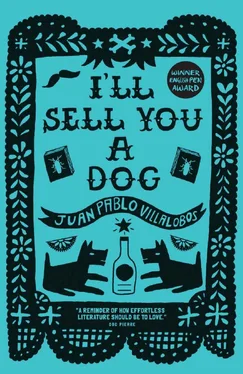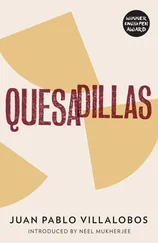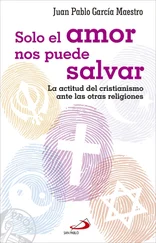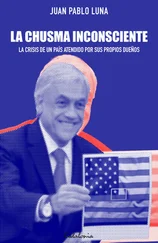‘I wasn’t a taco seller.’
‘You told the butcher you were! It’s all in the report! Or have you forgotten already that you tried to sell a dog to the butcher around the corner? Why do you think they assigned me to your case? I’m an expert in the illegal dog-meat trade.’
It was this sort of thing that made me feel like I’d been born in the previous century, a twentieth century that was looking more and more like the nineteenth century; this was the bewilderment that led me to call for drinks at shorter and shorter intervals in bars, that meant my whisky ran out sooner than I’d anticipated, the bewilderment that was diminishing my savings and which, day by day, was cutting short my life.
‘What harm will it do you to help me write a novel?’ Papaya-Head insisted in a conciliatory tone, picking up on my consternation. ‘If you help me I promise that report won’t cause you any problems. If you refuse I’ll destroy the medical certificate Dorotea got hold of, the one that says you’re an alcoholic suffering from dementia, and if I do that the report will be active again. By the way, do you have any idea what sort of punishment you’d receive?’
‘The electric chair?’
‘It’s quite a hefty fine.’
He then pronounced an astronomical figure, an amount of money I’d be able to live on for three years, if I was careful, or two, if I continued at the present rate. My life shortened by two or three years!
‘That’s the minimum,’ he added, ‘and, I assure you, you wouldn’t get away with it. Do you realise who the man who filed the complaint is? He’s a very influential person.’
‘So influential that when he realises the case has been closed he can force you to open it again?’
‘The trick is to palm them off until they get bored; people like this get bored quickly. But if the case is open and it progresses, you can be sure they’ll have no qualms about bringing you to justice.’
I necked my tequila in one to try and forget that a quarter of my savings might soon line the pockets of the richest man in the world and his family. And worst of all: to atone for my supposed role in their misery.
‘Where shall we start?’ said Papaya-Head.
I made one last, desperate attempt.
‘Aren’t you ashamed to blackmail an old man?’
‘You want my pity? You don’t want anyone’s pity.’
‘Don’t try and psychoanalyse me. Do you at least know how to write? What did you study?’
‘Veterinary science.’
‘And you want to write a novel?’
‘I told you already: I don’t know how to write a novel, but I’ve got the most important thing.’
I raised my eyebrows into an obvious question mark, with no room for misinterpretation.
‘Experience,’ he said.
‘There are writing workshops,’ I suggested.
‘At impossible times for me. I can only go on Sundays, at this time.’
‘Don’t you have to see to your wife and kids on Sundays?’
‘I told you, I don’t have a family.’
‘You didn’t tell me anything, all you did was mention a mysterious “something like that”. Maybe you’re bent? It wouldn’t matter, it might even work in your favour, there’re tons of gay writers.’
‘That’s prejudice.’
‘You’re wrong, O writer , that’s statistics.’
He fell silent, his silence consenting for him. Then he returned to the only topic that interested him:
‘Shall we start next Sunday?’
‘I guess there’s nothing for it.’
‘Do I need to bring anything?’
‘It’s a writing workshop, not a knitting class.’
‘But I ought to bring something, right? Material to work on, I don’t know.’
‘Bring a ball of wool.’
‘Eh?’
‘Bring along what you’ve got of your novel, I mean.’
Before he left, three large bottles of beer and two tequilas later, my tongue and attitude looser, and feeling wildly impertinent (as well as content, because Papaya-Head had paid for every round), I asked him:
‘Hey, don’t take this the wrong way, but has anyone ever told you your head looks like a papaya?’
‘You’re confusing me with someone else,’ he replied, amused, with the deceptive, false camaraderie brought on only by tequila. ‘That’s my brother.’
‘Your brother?’
‘Yeah, my older brother, everyone calls him The Big Papaya.’
My sister had announced she had a new job: she was going to be a secretary at a dog-food factory. It wasn’t one of life’s little ironies; her boss had switched companies and was taking her with him, as a reward for her supposed efficiency. My mother was about to say: Well he’s obviously got the wrong end of the stick. Before she could, my sister announced she’d be getting a discount on dog biscuits. Mum wanted to know how much. Fifty per cent, my sister replied. My mother said it was still extortionate considering Market ate our leftovers, which didn’t cost a thing, following the principle that there was always room for one more at the dining table, especially if one of the extra diners was a dog. Back then, towards the end of the fifties, dog biscuits were a novelty and a source of great wonderment as they seemed so modern: if a handful of dry cereals could fulfil all the needs of an animal, it was as though dogs had suddenly become more advanced than humans, who still had to resort to all sorts of complicated recipes. My sister said that Market’s breath stank (this was true) and that the biscuits would put an end to it. My mother said nothing, because the truth was that up to now the mutt’s foul-smelling mouth had prevented her from growing fond of him. Actually, she did say something. She said:
‘Well, we’ll see.’
Which meant that she accepted my sister’s new job and would put her suspicions aside while we tested the effect of the biscuits on the dog.
My sister began bringing sacks of dog food home, one a fortnight. And, just as she’d said, not only did Market’s breath stop smelling but his coat turned all silky and shiny. All our neighbours wanted to stroke the animal, which became the most handsome specimen on the block. My mother was over the moon.
Until one day, Market started choking at dinner time. Miraculously, he didn’t die. Miraculously — and because Mum stuck her fingers down his windpipe, from where she rescued a piece of paper, folded up small. An obscene message that had been deposited there for my sister, inside the bag of dog biscuits. It said — I can still remember it — among declarations of a forbidden love: your legs are longer than the road to Cuernavaca . And: your curves are like the ones on the road to Puerto Vallarta. The company my sister and her boss used to work for provided services to the Ministry of Communications and Transport. It could have been worse: had the new job made similar inroads in her boss’s imagination, his similes could have been further enriched. It was all written in red ink on a sheet of the company’s headed notepaper.
Mum shut herself up in her room with Market, who wouldn’t stop whining, as if he foresaw a return to a diet of rice, stale tortillas, beans and old bones. She emerged later, as if nothing had happened, and no one spoke of the matter again. There were no punishments, no demands, no prohibitions; there was silence, and something new that came with adult life: pretence. There was too much suffering in the family as it was to go and ruin the dog’s coat as well.
I had been flicking through my Hillman, reading fragments here and there like a chicken pecking randomly, and without even looking I’d come across an oh-so-long, oh-so-fat, succulent worm. I copied the phrase into my notebook with all the bad intentions in the world: As truths are the fictions of the rational, so fictions are the truths of the imaginal. The hermeneutical skirmish in the salon lasted a week. Just as they were about to come to an agreement about what they all thought they’d understood, I walked through the lobby, as if by chance, and dropped this bombshell on them:
Читать дальше












